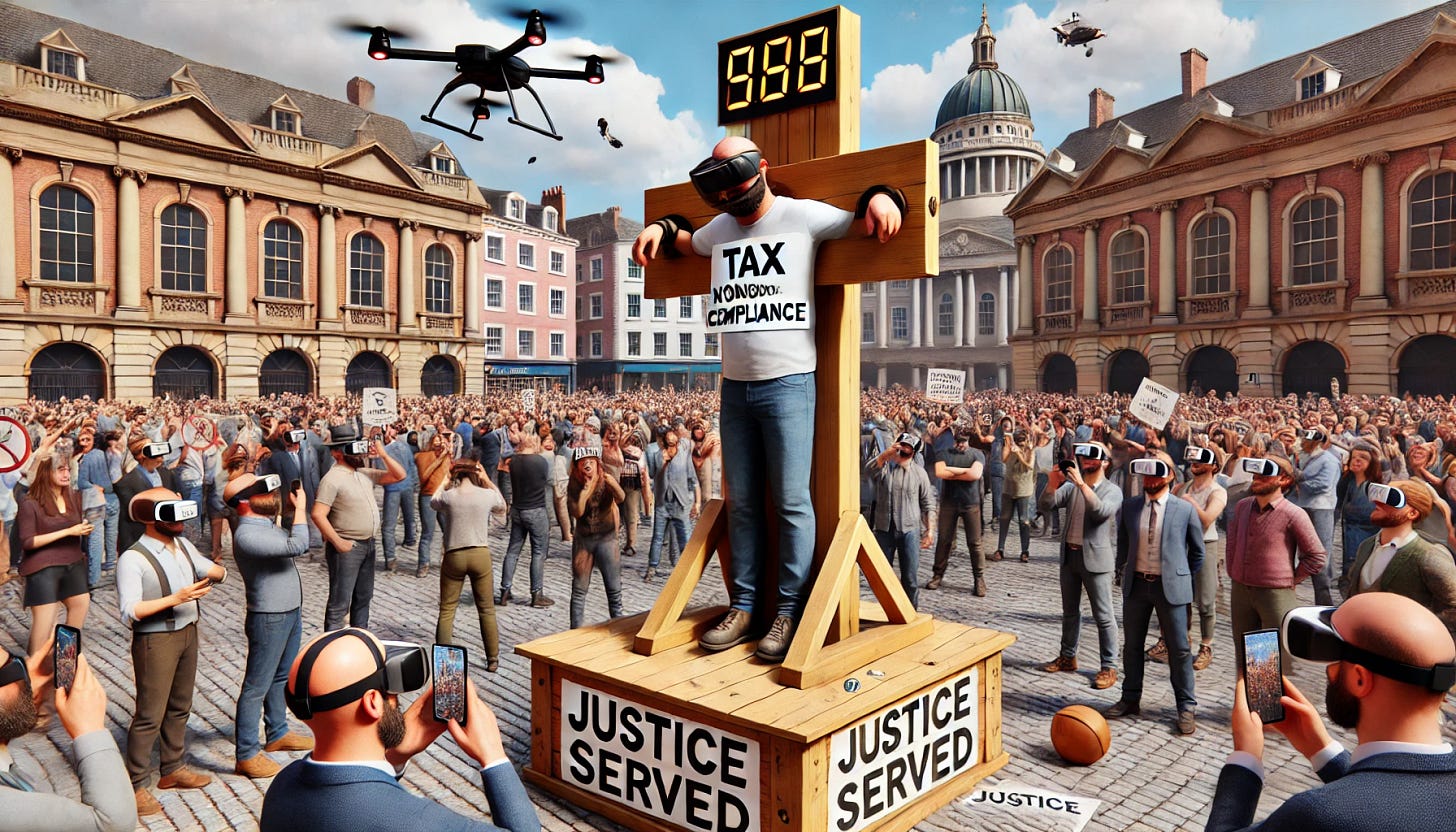Will democracies become increasingly authoritarian?
Conclusion on nation-states and regulations
Note : This article is the 9th in a series on over-legislating a a path that more and more nation-states are taking in an attempt to emasculate the disruptions that threaten them.
Here is the first 8 articles in the series :
Faced with an individual or most businesses, the State is by far the strongest: that's why counter-powers have been developed over time, to ensure that individuals and companies are not put at too great a disadvantage.
But if the state no longer complies with the laws and regulations it has pledged to respect, if it increasingly interprets them to its own liking, and always to its own advantage, how can it respect these checks and balances?
And yet, there's a real trend towards "modern-day pillorying" of people guilty of not complying with tax rules, with the introduction of "name and shame", posting their names on official government websites1 and in the press2 .
Will the government apply this standard to itself when it is condemned for failing to comply with its own laws, by putting forward the names of the officials behind the illegal decision and its application?
Is it a fair and balanced relationship, or a classic one where the stronger imposes its conditions on the weaker?
And at the end of the day, if a state doesn't respect the very rules it's committed to respecting, what legitimacy does it have to ask you to do so?
Control to become increasingly intrusive
”Legibility is a condition of manipulation. Any substantial state intervention in society [...] requires the invention of units that are visible. [...] Whatever the units being manipulated, they must be organized in a manner that permits them to be identified, observed, recorded, counted, aggregated, and monitored. The degree of knowledge required would have to be roughly commensurate with the depth of the intervention. In other words, one might say that the greater the manipulation envisaged, the greater the legibility required to effect it.”
James C. Scott, Seeing Like a State
Understand also that, the more mobile society becomes, the more individuals will tend to act as customers seeking the best quality/price ratio in a market of jurisdictions, rather than as immobile citizens.
But the more a state wants to restrict a natural and massive movement, the heavier its monitoring and intervention in society must be, and the more it must restrict fundamental freedoms.
This tension explains why a natural reaction of states to all the disruptions we have seen is to fall into an increasingly Orwellian surveillance of their population, and to suffocate it under a mountain of regulations, each more intrusive and controlling than the last; and explains their motivation to change the interpretation of laws so that they go their way.
How the Internet frees you from this straitjacket
Used intelligently, the Internet can give you some of its Leviathan powers, which reduce the power of nation-states.
This means you can use it to be less subject to the silliest regulations (unfortunately, it's impossible to escape them completely, but you can greatly reduce the influence they have on you).
Leaving your country for a less regulated territory is probably the most important 80/20 action3 you can take. We'll talk more about this in the next series.
Coming soon
After spending just over a year examining the disruptions threatening the nation-states and how they will react to them, it's time to start Part 2 of my forthcoming book: how to make the most of this new world.
Stay tuned ! In the meantime, feel free to follow Disruptive Horizons on Twitter and Linkedin, and join the tribe of Intelligent Rebels by subscribing to the newsletter :
And here are the first 8 articles of this series :
Arnaud Lefebvre, "La DGFiP s'ouvre au "name & shame"", Option Finance, 2023
Emma Confrère, “Face aux industriels, Bruno Le Maire mise sur le «name and shame», une stratégie efficace mais risquée”, Le Figaro, 2023
As a reminder: about 20% of your actions will produce 80% of the results you're looking for - that's Pareto's law.





